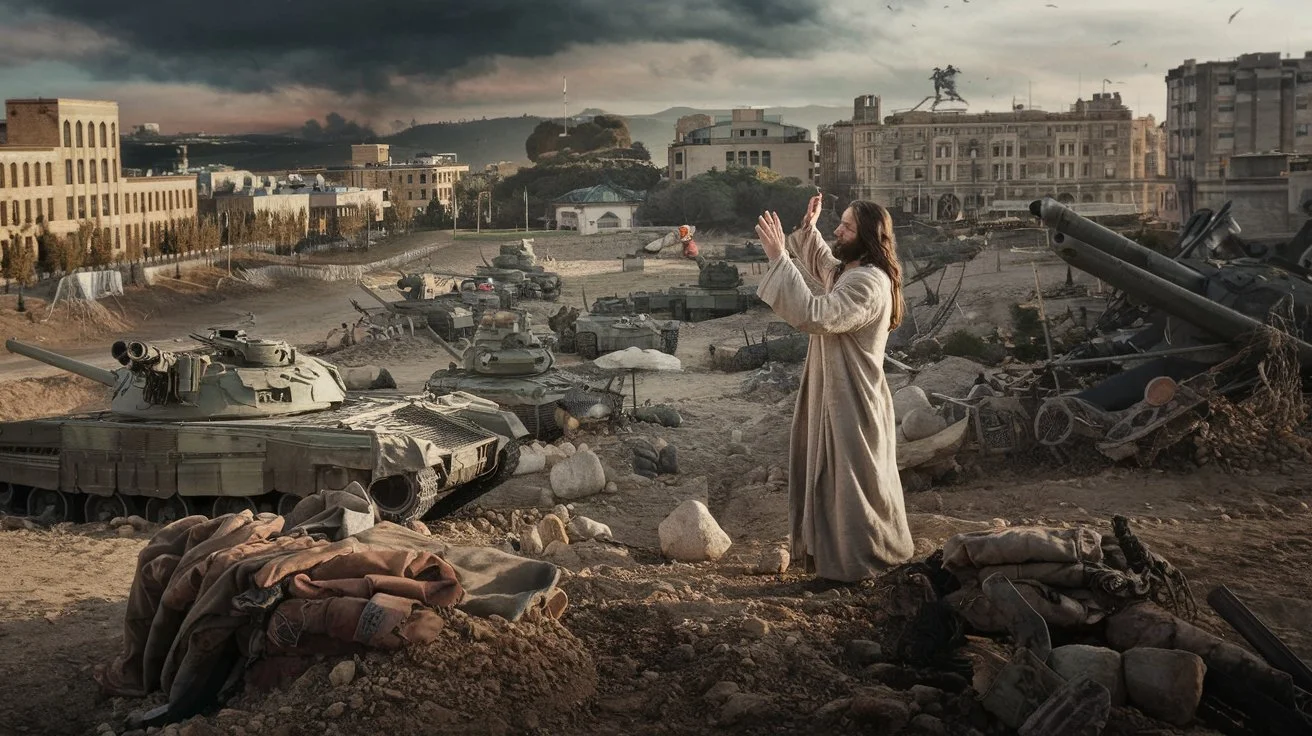The world has witnessed tremendous technological advancements, cultural exchanges, and a growing emphasis on global unity. However, alongside these developments, tensions among nations, climate crises, and ideological conflicts have raised concerns about the possibility of a third world war. Many people also view such global instability as a precursor to significant spiritual events, including the second coming of Jesus, as foretold in Christian theology.
The Geopolitical Climate and the Fear of War
Modern geopolitics is marked by increasing complexities. The world’s superpowers—such as the United States, China, and Russia—frequently find themselves at odds over territorial disputes, trade policies, and military strategies. Rising tensions in regions like the Middle East, Eastern Europe, and the South China Sea have sparked concerns about an escalation that could spiral into a global conflict.
Nuclear proliferation and the arms race further exacerbate fears. Despite international treaties like the Treaty on the Non-Proliferation of Nuclear Weapons (NPT), the global stockpile of nuclear weapons poses a dire threat to humanity. A third world war in the nuclear era would be catastrophic, with far-reaching consequences not only for humanity but for the planet as a whole.
However, there are counterbalancing factors. Diplomacy, international organizations like the United Nations, and global economic interdependence act as barriers to large-scale wars. The lessons of World War I and World War II also serve as stark reminders of the devastating costs of war, encouraging nations to resolve disputes through dialogue.
The Second Coming of Jesus: A Hopeful Perspective
For many Christians, the possibility of Jesus’ second coming is a source of hope amid global chaos. Biblical prophecies, particularly in the books of Matthew, Revelation, and Thessalonians, speak of signs that will herald this event, such as wars, natural disasters, and moral decline.
Some interpret current events—ranging from climate crises to social unrest—as aligning with these prophecies. This perspective suggests that humanity is nearing a pivotal moment in spiritual history. The second coming of Jesus is seen as a time of judgment and restoration, where peace and justice will prevail after a period of tribulation.
Interconnection of Global Events and Spiritual Beliefs
The intersection of geopolitical fears and spiritual expectations invites deep reflection. From a secular perspective, the fear of a third world war underscores the urgency of fostering peace and addressing the root causes of conflict, such as inequality, resource scarcity, and ideological extremism.
From a spiritual viewpoint, these global challenges serve as a call to examine humanity’s collective moral and ethical direction. The belief in Jesus’ return encourages many to focus on personal and communal transformation, fostering values of love, forgiveness, and compassion.
Lessons for Humanity
The possibility of a third world war and the anticipation of Jesus’ second coming, though different in nature, both highlight humanity’s need for unity, empathy, and spiritual awakening. Regardless of one’s religious beliefs, these themes emphasize the importance of working toward a better world.
By addressing the issues that divide nations—be they political, economic, or cultural—and focusing on shared human values, we can reduce the risk of conflict. Likewise, embracing spiritual principles of kindness and justice can guide individuals and societies toward a more harmonious existence.
Conclusion
The fear of a third world war is a sobering reminder of humanity’s vulnerabilities. Simultaneously, the hope for Jesus’ second coming represents a yearning for redemption and peace. These contrasting possibilities challenge us to choose a path of compassion, cooperation, and resilience.
As we navigate these uncertain times, let us focus on fostering peace in our relationships, communities, and nations. Whether motivated by faith, reason, or both, working toward a just and harmonious world is a shared responsibility—and perhaps the greatest preparation for whatever the future holds.
